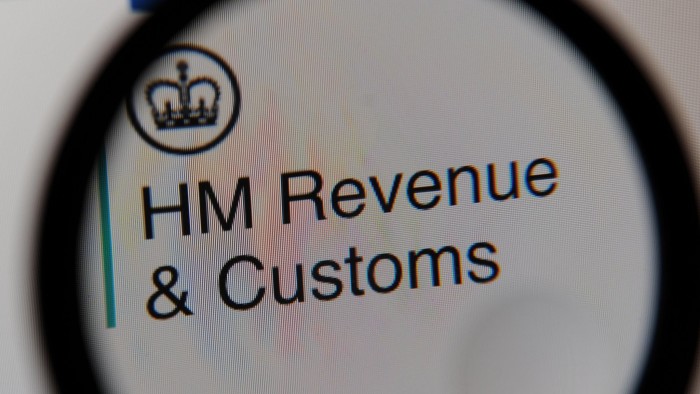HMRC tax crackdown victimises easy targets
Roula Khalaf, Editor of the FT, selects her favourite stories in this weekly newsletter.

Up to 50,000 people will owe the taxman tens — in some cases hundreds — of thousands of pounds by April 5. The bills will leave some of them having to sell their home or go bankrupt.
Instead of being paid directly for their work, these individuals had their wages paid to a third party company, often offshore, and then sent back to them as a loan. These loans were typically repayable over a very long period, if at all. The loans were said to be not taxable. So instead of paying tax and national insurance contributions at 32 per cent or 42 per cent, the contractors, who included nurses and teachers, paid 5 per cent or 10 per cent of their pay as fees to the scheme providers and saved themselves thousands of pounds a year. Now HM Revenue & Customs says they must pay all the tax they avoided right back to 1999 in one go on April 5 2019. There is no right of appeal.
These “contractor loan schemes” certainly fit HMRC’s definition of tax avoidance — “artificial transactions that serve little purpose other than to produce a tax advantage”. No one is more fiercely against tax avoidance than I am. My dole of sympathy for film investors and trust users would not fill a small teaspoon. I have criticised contractors — including some radio and TV presenters — for pretending to be companies to reduce their tax bill by paying themselves, and sometimes a spouse as well, in dividends rather than wages. But there are aspects of the government’s latest tax crackdown which leave me very uncomfortable.
Richard Horsley of the Loan Charge Action Group, a campaign group, says those involved had little choice. “Many thousands of people have been funnelled into these schemes as prerequisites for taking up a job. And a lot of the time this came from employers and clients and through agencies. These people are nurses and social workers, for example, not financial experts, and they took this advice in good faith.”
He also says that for many years HMRC accepted self-assessment forms referring to the schemes which were properly revealed under the Declaration of Tax Avoidance Schemes (Dotas) rules.
The key court case involved Rangers Football Club. From 2001 to 2008 it paid some of the wages of well-remunerated players and staff into a trust which then lent the money back to the individuals. It was only in July 2017 that the Supreme Court finally ruled that “the emoluments or earnings and payment to [the trust] should have been subject to deduction of income tax”.
Lawyers disagree whether that case applies to the much lower profile contractor loan schemes. But Mel Stride, Treasury minister, now claims “these schemes have always been ineffective. They have never worked. They have always been tax avoidance.”
Before it knew it would win the Rangers case, the government decided to bypass any debate about the lawfulness of these schemes by taxing the money anyway. It proposed a new law so any payments for work received as a loan would be subject to a “loan charge” equivalent to the tax that would have been due if the loan had been paid as wages. By simply imposing a loan charge on the money, this law avoids HMRC being mired in thousands of individual appeals about whether the schemes do or do not work under normal tax rules.
The loan charge law received Royal Assent last November, allowing it to be levied on loans back to 1999. That 20-year range is normally reserved for blatant acts of criminality, such as not handing over VAT or hiding income. One social worker who faces a bill of tens of thousands of pounds which, she told Radio 4’s Money Box programme, will mean she has to sell her home said: “I may be stupid, naive, and misinformed, but a criminal I am not.”
Mr Stride told me the legislation is “not retrospective”. I struggle to see how a law passed in 2017 that gives the state power to tax receipts back to 1999 is anything but. I am told lawyers agree and a judicial review seems likely.
HMRC is using this new law to chase people who are not wealthy for life-changing amounts of money which many simply do not have. HMRC says the median pay of those affected is twice the national average and promises that those earning less than £50,000 will be given five years to pay. But even that is hardly generous. On a tax debt going back 10 years an individual would be paying triple tax until 2023-24.
Campaigners ask why the government is not prosecuting the agents who sold these schemes, or chasing the employers who paid the wages gross to offshore firms without deducting tax and national insurance, as the Supreme Court now says they should have. Mr Stride responds that it would be unfair on people who paid their taxes if those who avoided doing so did not have to pay the full amount.
For some reason the phrase “low hanging fruit” keeps coming to my mind.
Paul Lewis presents ‘Money Box’ on BBC Radio 4, on air just after 12 noon on Saturdays, and has been a freelance financial journalist since 1987. Twitter: @paullewismoney
Comments